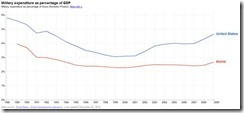Despite mainstream experts blabbering about deflation, we’ve been defiantly predicting for a long long long long time that inflation would be coming and would pose as the next real risk (everywhere).
That’s because it has been the instinctive/intuitive approach by central bankers to use their printing presses as antidote to perceived economic predicaments. (Despite years of experience people never learn and always find ways to perpetuate policies anchored upon acquiring “something from nothing”-which I would call “political greed”)
And reemergent “consumer price” inflation represents as the “unintended consequence” and “symptoms” from such persistent policies.
This report from the Wall Street Journal’s Blog, (bold emphasis original)
Consumers see more inflation ahead. That views puts them at odds with Federal Reserve officials and private sector economists.
According to Friday’s consumer sentiment survey released by Reuters/University of Michigan, inflation expectations have been rising since late summer. Back in September, U.S. consumers expected the inflation rate one year out to hit 2.2%. In early-February, the one-year expected inflation rate is up to 3.4%.
Contrast that rate with the tamer forecasts at the Fed and among private economists.
On Wednesday, Fed chairman Ben Bernanke told the House Budget Committee that “inflation is expected to persist below the levels that Federal Reserve policymakers have judged to be consistent over the longer term with our statutory mandate to foster maximum employment and price stability.”
In the US, it’s hardly true that mainstream private sector experts have been on the “inflation risk” camp, many, if not most, have sided with officials to claim inflation hasn’t been a threat mostly because of “output gap", “capacity utilization”, “unemployment” conditions and etc...an example of this outlook can be read here
Yet the “man on the street” sees things differently.
More from the same article, (bold highlights mine)
How can households be more hawkish about inflation than the Fed?
Much of the dichotomy reflects which prices are in focus. The Fed and economists tend to pay attention to core inflation, which ignores food and energy and which better reflects underlying economic conditions. Households pay more attention to the items most frequently bought, in particular gasoline and groceries.
See the difference?
The expert-official camp fundamentally relies on statistical data which isolates real world variables.
Meanwhile, households feel the pressure from relative price changes that affects their overall purchasing power based budgets.
The end result: A massive detachment between expert-official opinions and real events which shapes household’s expectation.
The use of statistical data can be manipulated to the extent that it will be (has been repeatedly) used to justify the imposition of ideologically based policies (mostly predicated on mathematical models).
Again to quote Mark Twain,
There are three kinds of lies: lies, damned lies and statistics
Eventually statistical chicanery backfires, as the above developments shows.






